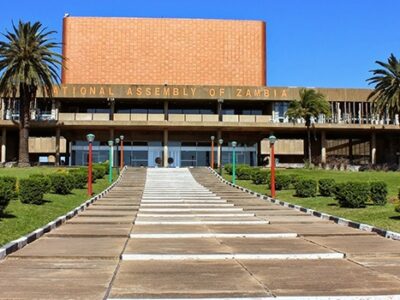The year 2021 marked a pivotal moment in Zambia’s digital rights history as the country witnessed a significant decline in internet freedom during the general elections.
For the first time, Zambians were compelled to use virtual private networks (VPNs) to access social media and communication platforms during the crucial August 2021 elections, where opposition candidate Hakainde Hichilema secured a landslide victory.
The government’s decision to block access to these platforms during such a critical period sparked widespread debate.
In response, Chapter One Foundation, a local human rights-focused non-governmental organization (NGO), filed a lawsuit against the Zambia Information and Communications Technology Authority (ZICTA).
As a result of the legal challenge, ZICTA committed to operating within its legal bounds and enhancing transparency regarding internet disruptions.
The internet shutdown during the election was widely seen as a significant infringement on digital rights in Zambia.
At the time, the opposition United Party for National Development (UPND) primarily relied on social media for campaigning, as they were prohibited from holding physical rallies.
The government’s actions were condemned by many, including Chapter One Foundation and other stakeholders, as a severe violation of Zambians’ access to digital rights.
This incident also underscored the ongoing debate about balancing national security measures with the protection of digital rights and privacy in Zambia.
Digital transformation has profoundly impacted human rights, particularly freedom of expression and the right to privacy.
In the pre-Internet era, these rights were often seen as opposing forces, interacting primarily when journalists reported on public figures or when journalists’ privacy was invaded.
Read more: Clergyman raises concern over abuses associated with digital rights and freedom of expression
Recognizing the need to protect and promote individual privacy rights, Zambia passed its first Data Protection Act, Number 3 of 2021, on March 24, 2021.
The Act aimed to govern the use of personal information, preventing unlawful collection, processing, transmission and storage of personal data, thereby safeguarding the right to privacy.
Recalling the 2021 events, Ministry of Information and Media Permanent Secretary, Director Press and Media, Morden Mayembe, stated that the current government would not ban the use of social media, as there is an act that regulates its usage.
Mayembe pointed to the Cyber Security and Cyber Crime Act as the law guiding the use of social media space.
“There is an act of parliament in place, the one that was signed in 2021 before the general elections. That is the Cyber Security and Cyber Crime Act. So, there are provisions that regulate the use of social media. For example, you are not supposed to engage in hate speech. As a result of that act, people who abuse social media or go beyond the boundaries are regulated by that act.
“So, because of that law, there is no blanket ban on the use of social media; it is the law that is regulating it. That is why you do not see the government coming in to close the social media space as it happened in the past. It has allowed people to operate within the confines of the law,” he said.
UNESCO, in its document on the right to privacy in the digital age, noted the interdependence of privacy and freedom of expression in the modern world.
It highlighted how privacy violations could have a “chilling effect” on media freedom, with monitoring of online activity, data retention, big data, AI-powered surveillance, and hacking all posing threats to both individual privacy and the free practice of journalism.
The events of 2021 in Zambia serve as a crucial reminder of the delicate balance between security and freedom in the digital age and the ongoing struggle to protect citizens’ rights in an increasingly connected world.
WARNING! All rights reserved. This material, and other digital content on this website, may not be reproduced, published, broadcast, rewritten or redistributed in whole or in part without prior express permission from ZAMBIA MONITOR.












Comments